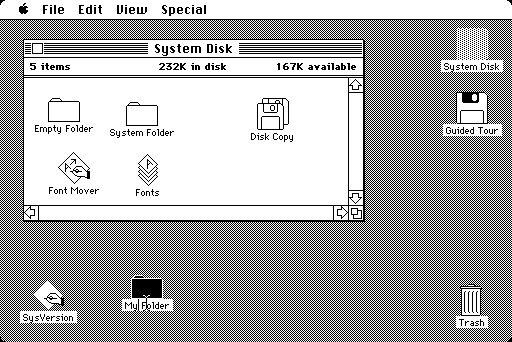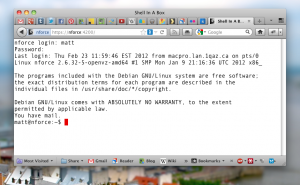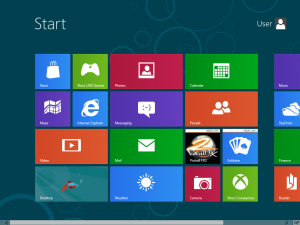Cost savings
Lately I’ve been reviewing my finances. I haven’t exactly been frugal over the past few years, and now that I’ve moved into a proper (and considerably more expensive) apartment, it’s time to grow up and take responsibility.
So far, I’ve found the following cost-saving opportunities:
- Cancel Bell Fibe TV. As cool as I find IPTV, and despite the convenience of having loads of TV channels with a PVR, the fact is I don’t really watch that much TV. I do most of my media consumption via the Internet (like most other kids these days), and probably 80% of my live TV watching consists of CBC (The National, Strombo) and CityTV (BT, Community, Parks and Rec) – both of which are available in ATSC HD over-the-air here in Toronto. Combine that with XBMC‘s new PVR functionality and there’s no real reason to keep a TV service.
- Cancel landline phone. Yes, I still have a landline. Landlines are cool. (I think I see a recurring theme here…) When I was little (and unburdened with privacy concerns) I loved the idea of being listed in the white pages. Later on, the PSTN gained a certain mystery, hearkening back to the days of dial-up internet, phreakers with their boxes, live telephone operators, teenagers wanting their own phone lines, all the way back to the early 20th century. But the fact is that now in the early 21st century, the age of the PSTN is past. I’m not even sure I make one voice call a week outside of work. It’s gotten to the point where I once flashed a CyanogenMod nightly onto my phone and used it for a week before realizing the Phone app was broken. All that and the simple fact that landlines are freaking expensive. Bell wants $28.98/month before tax for “Home Phone Lite“. Freephoneline.ca offers a VoIP number for $0/month.
- Be more energy-conscious. For the first time, I have my own hydro bill. I went out and bought a Kill-A-Watt and started checking all my electronics’ and appliances’ power consumption. More on this later.
- Move to the cloud. The public cloud, that is. I have a 1U server in a datacentre in Missisauga hosting a few VMs, including this blog. It’s a pretty hefty cost, especially since I upgraded to a more powerful but older server (more incentive for #3). Nowadays a VPS/Amazon EC2 instance can be had for under $20/month, running just about any OS, and with a better Internet connection than one could hope to have privately for the cost.
- Cancel personal smartphone. My workplace provides me with a smartphone. When I started, it was a BlackBerry 8830 World Edition, which was super cool – until the iPhone was launched. Since then I’ve switched to an iPhone 4 for work and an HTC Sensation for personal use. Having two phones is great (more on that later) – and I CHOOSE to have 2 phones, either one could do both work and play – thank you very much SAMSUNG. (God do I ever hate those commercials. And TouchWiz. And their poor quality control. And all the cheap plastic and gaudy designs. I could go on for a while…) Long story short, consolidate on one device, save space in pockets, save <$50/month.
- Last but not least, stop buying random crap. I love technology. I love fixing things. I love learning and challenging myself. But at some point, keeping old computers to repair and experiment with Linux can go too far. Like a banker’s box full of possibly working laptops too far.
We’ll see how this goes over the next few months.



